My new e book, Get Higher at Something, got here out two weeks in the past. Thanks once more to everybody who has purchased it thus far! For these of you who’ve already dived headfirst into the e book, I’d significantly recognize a evaluate on Amazon—opinions make a giant distinction in serving to new folks uncover the e book.
The central concept of my new e book is that three elements decide how rapidly we will study: seeing examples from others, doing follow ourselves, and getting suggestions on our work. These substances could appear easy, however getting them proper is commonly difficult.
Primarily based on the analysis I clarify in my new e book, this submit outlines seven frequent the explanation why our efforts at enchancment stall—and the way we will get unstuck.
1. You don’t know the correct method.
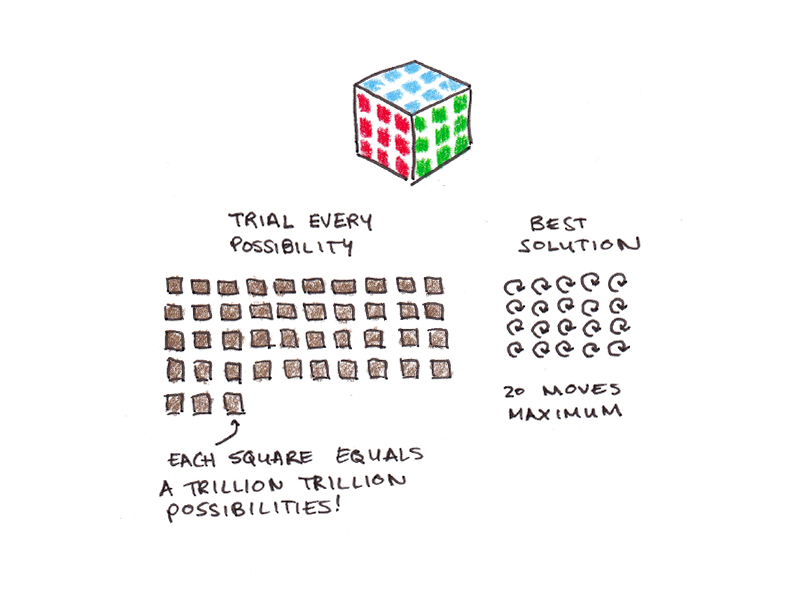
Virtually the whole lot we all know comes from different folks. Science, artwork, enterprise and tradition are all cumulative efforts that construct upon the hard-won strategies and insights of the previous. Subsequently, essentially the most basic issue we encounter in enhancing shouldn’t be realizing (or not getting access to) the very best strategies for fixing an issue.
Think about fixing a Rubik’s Dice. The potential mixtures of the three×3 dice are huge—over 43 quintillion potential configurations. Assuming every transfer takes a second, making an attempt them one after the other would take longer than the age of the universe. However with the correct method, any configuration could be solved in below twenty twists.
The start line for any enchancment effort, subsequently, is to determine how individuals who succeed with the talent already do it.
2. You don’t have sufficient background information.
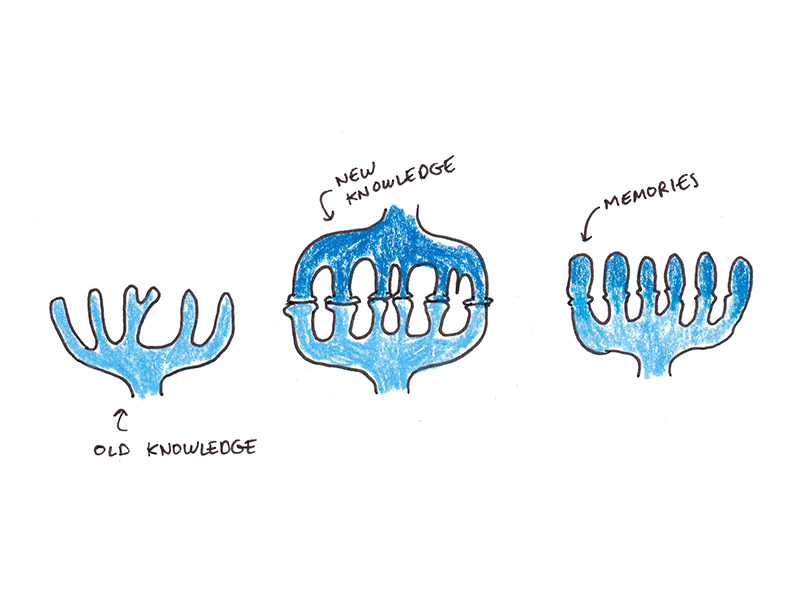
The issue of abilities and topics isn’t fastened. It at all times depends upon what you already know. When you solely know English, a lesson taught in Japanese can be mystifying, regardless of how sensible you’re. But the identical lesson may not be troublesome for a kindergartener from Tokyo.
That’s an apparent instance, however the affect of background information could be a lot tougher to identify. Understanding extra a few topic, as an example, impacts how a lot you bear in mind from a textual content greater than uncooked studying capability or intelligence does.1 This makes the relative contribution of uncooked capability and prior expertise tougher to untangle—are you actually missing expertise, or do you simply have much less expertise with the stipulations?
The important thing to constructing excessive is to safe a stable basis. Determine what the prerequisite concepts, information, procedures and abilities are in a site, and ensure you’ve actually mastered these everytime you get caught on a difficult class or downside.
3. You’re not getting sufficient follow time.
Apply tends to hurry abilities up and make them extra automated, fluent and correct. In mental domains, elevated follow can cut back the quantity of cognitive load wanted to carry out a talent, that means you possibly can deal with extra sophisticated duties than you might while you began.
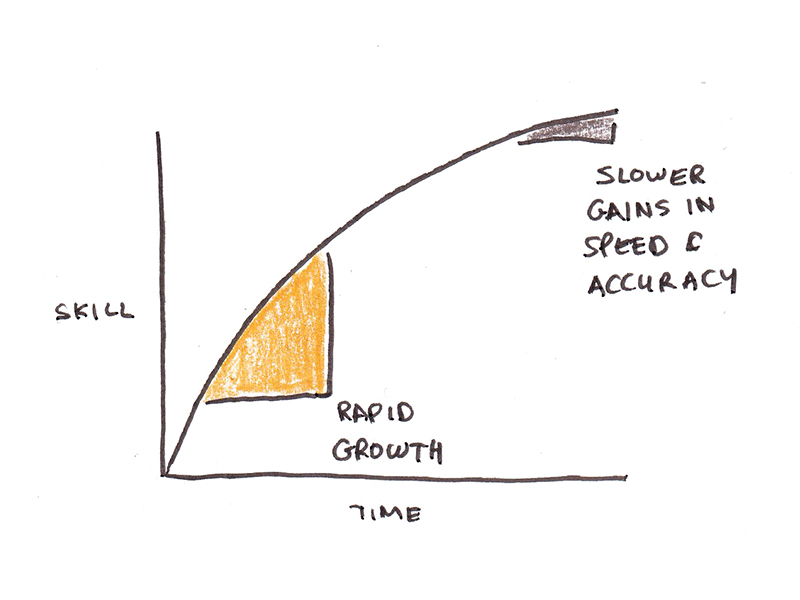
The energy legislation of follow means that this enchancment in efficiency from repeated follow follows a curve that begins out steep and slowly flattens over time. Even so, the variety of repetitions wanted to realize mastery can take some time to build up—in a single experiment, cigar rollers continued to get higher, even after tens of hundreds of repetitions.
No intelligent technique or hack could make up for a scarcity of follow.
4. You’re practising the flawed talent.
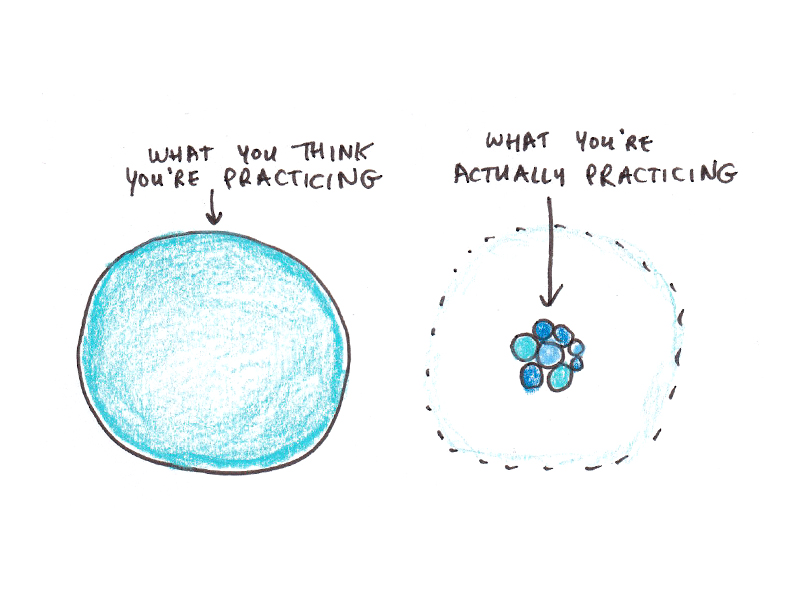
Apply helps, however it’s not a panacea.
Switch, the measure of how a lot follow on one process improves efficiency in one other, has continuously been proven to be narrower than folks assume. Which means that ample follow on the flawed talent, within the flawed setting, or with the flawed helps may end up in minimal enchancment within the talent you are attempting to enhance.
Any try at enchancment wants to start out by getting clear on what—precisely—you’re making an attempt to get good at, breaking down obscure skills into concrete duties, strategies, concepts or judgements. When you’ve performed that, you possibly can tailor your follow extra on to these components that matter to you.
5. You’re not in a position to study out of your errors.
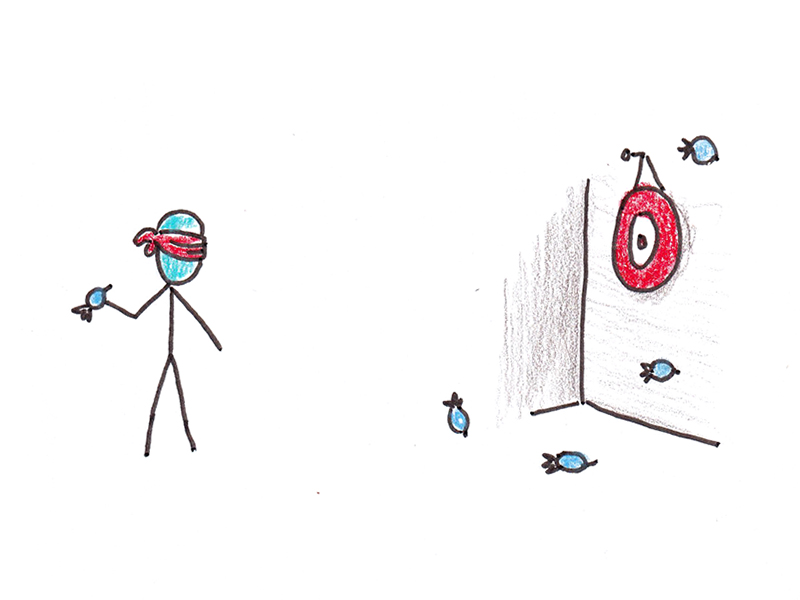
With out good suggestions, enchancment is commonly unimaginable.
The good psychologist Edward Thorndike found this in an early experiment. Members tried to attract traces of a specific size whereas blindfolded.2 Being unable to see how lengthy their strokes have been, they made no enchancment even after hundreds of trials.
Whereas it might appear foolish to attract traces along with your eyes closed, many people do one thing equal once we attempt to enhance in areas of our lives. We recruit candidates, however by no means observe how nicely the folks we flip down do. We estimate challenge lengths, however by no means examine whether or not our previous efforts have been on time and on funds. There’s a big physique of scientific literature documenting the moderately mediocre efficiency of area specialists in decision-making duties with weak cues and poor suggestions.3
Tons of expertise can result in overconfidence, not experience, in case your follow isn’t knowledgeable by clear, calibrating suggestions.
6. Your setting is simply too difficult—or not difficult sufficient.
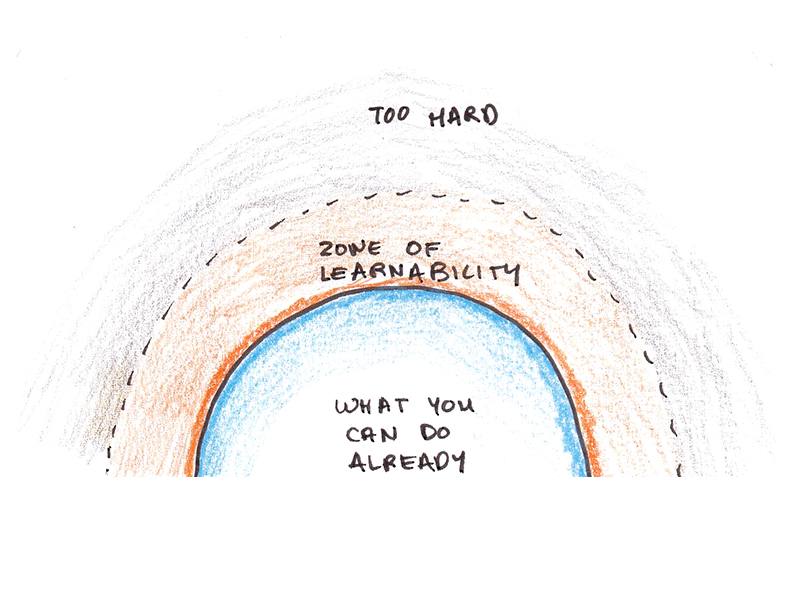
An especially troublesome problem doesn’t maximize studying. As with the Rubik’s Dice, if you happen to face an issue with out realizing the very best strategies, you possibly can waste years and by no means determine them out by yourself. Tackling a sophisticated problem could make it tougher to deduce the essential ideas.
It’s higher to construct from a powerful basis. However even with the very best basis in related background information and abilities, elevated challenges are wanted to maintain making progress. That is for 2 causes:
First, if we proceed working solely on simpler duties, we could by no means attain the heights we actually wish to carry out at. When you persist with flashcards when studying a language, it’s possible you’ll by no means graduate to having a dialog. When you solely write essays, it’s possible you’ll by no means end a e book. Many abilities are a continuum of complexity, and if the purpose is to do one thing spectacular, we have to maintain making progress via that vary.
Second, we have a tendency to regulate our efficiency solely once we get suggestions from the setting indicating one thing is inadequate. If we persist with the identical issue stage, we could discover a resolution that “works” however isn’t ultimate. Repeated follow, then, tends to make our efficiency smoother and extra automated, however we could by no means get the nudge to up our recreation.
7. You don’t have the correct psychological mannequin for a way studying works.
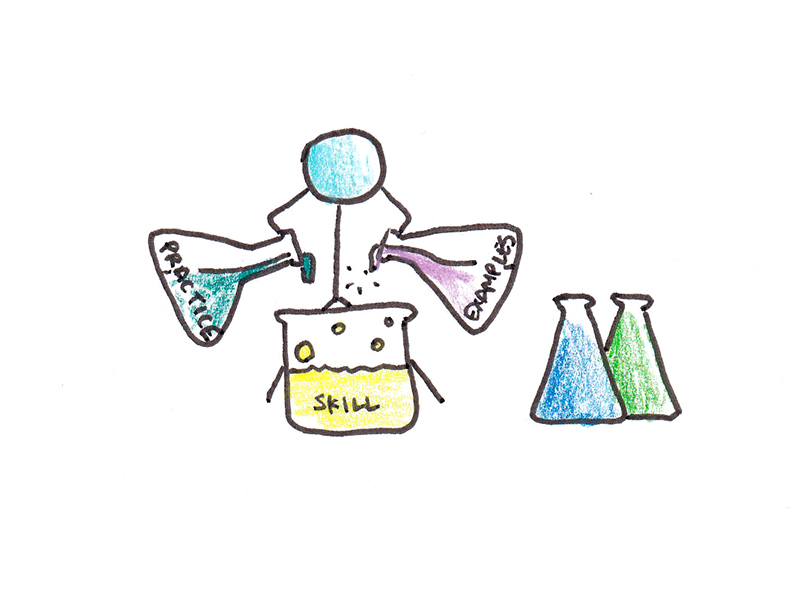
As with something in life, your capability to troubleshoot depends upon having an enough psychological mannequin to clarify how one thing works. You may’t repair your automotive, laptop and even your profession if you happen to don’t know what actually underlies progress.
The analysis on studying is huge and complex, however the fundamental psychological fashions that underlie how studying works could be understood by virtually anybody. Having an correct understanding of a discipline you’re studying or a purpose you wish to obtain makes a giant distinction since it will probably make it easier to diagnose errors earlier than you develop into immovably caught.
A part of my motivation for writing Get Higher at Something was to attempt to present these psychological fashions. If you wish to study extra, click on right here to get a free chapter of the e book!
Footnotes
- Recht, Donna R., and Lauren Leslie. “Impact of prior information on good and poor readers’ reminiscence of textual content.” Journal of instructional psychology 80, no. 1 (1988): 16.
- Thorndike, Human Studying.
- Grove, W. M., & Meehl, P. E. (1996). Comparative effectivity of casual (subjective, impressionistic) and formal (mechanical, algorithmic) prediction procedures: The medical–statistical controversy. Psychology, Public Coverage, and Regulation, 2(2), 293–323. https://doi.org/10.1037/1076-8971.2.2.293

